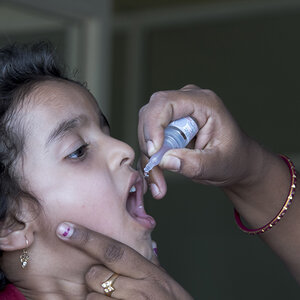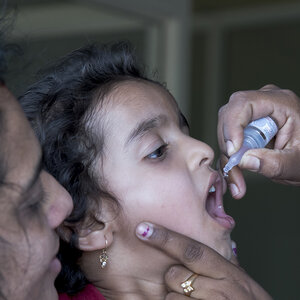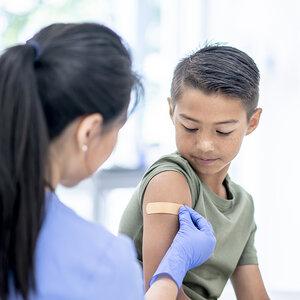Gates Foundation, AFD commit $59.2 million to fight polio in Pakistan

The Bill & Melinda Gates Foundation and the Agence Française de Développement (AFD) have announced new commitments in support of global polio eradication by 2026.
In alignment with the Paris Pact principles combining official development assistance and private investment, the funding includes a concessional loan of up to €55 million ($59.2 million), with a principal buy-down of up to €20 million ($21.5 million) from the Gates Foundation. The investment will support Pakistan’s national health institutions and the Pakistan Polio Eradication Initiative in the wake of the August 2022 floods, which left one-third of the country submerged underwater, approximately 15,000 people killed or injured, and eight million displaced. Damage to infrastructure was also catastrophic: more than two million homes, 13,000 kilometers of highways, 439 bridges, and 888 health centers were damaged or destroyed, leaving those affected by the floods without access to health care. The Gates Foundation also noted that flooding triggers a surge in water-borne diseases (severe diarrhea and cholera) and diseases carried by insects (dengue fever and malaria).
The project will bolster efforts to create a climate-resilient health system capable of anticipating, recovering from, and adapting to climate-related shocks and stresses, so as to bring about sustained improvements in population health despite an unstable climate. By funding the Pakistan Polio Eradication Programme through the World Health Organization (WHO) in immunization activities, disease surveillance, polio campaign monitoring, and other technical areas, the AFD investment will enhance systems able to target climate-sensitive diseases and their risk sources. In addition, the funding will provide further support for female polio healthcare workers, whose efforts and experiences are central to Pakistan’s success in fighting polio and other diseases.
“This €55 million investment helps to address a dual challenge that is central to the Ministry of Europe and Foreign Affairs’ global health strategy and its international partnerships policy: strengthening our partners’ health systems while taking into account the impact of climate change on public health,” said Chrysoula Zacharopoulou, secretary of state in charge of development, Francophonie, and international partnerships. “This program is an excellent illustration of this.”
“Pakistan has made incredible progress toward eradication, and by addressing barriers to eradication—including gender-related barriers—will continue to do so,” said WHO regional director Ahmad Al-Mandhari. “Commitments like this will help keep the country on track to interrupt transmission of wild poliovirus for good and help deliver a more resilient, polio-free world.”






